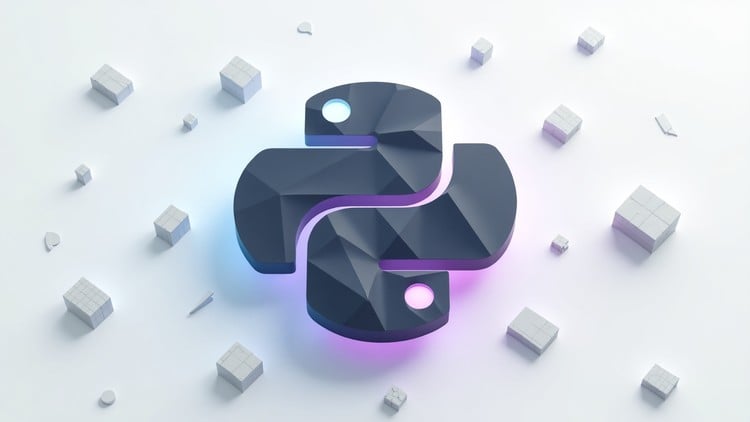
Prepare Effectively for the PCAD™ Certification Exam Using Structured and Insightful Python Mock Exams!
👥 1,472 students
🔄 July 2025 update
Add-On Information:
Note➛ Make sure your 𝐔𝐝𝐞𝐦𝐲 cart has only this course you're going to enroll it now, Remove all other courses from the 𝐔𝐝𝐞𝐦𝐲 cart before Enrolling!
- Course Overview
- This course offers highly focused, comprehensive preparation for the PCAD (Python Certified Associate Data Analyst) certification exam, designed for individuals validating Python data analysis proficiency.
- The primary method involves a curated collection of structured and insightful Python mock exams, precisely mimicking the official PCAD exam format, question types, and time constraints.
- Participants will confront real-world data analysis challenges, applying Python programming, statistical reasoning, and data manipulation techniques expected from a certified data analyst.
- The curriculum directly aligns with the official PCAD certification syllabus, ensuring complete coverage of all required knowledge domains and objectives.
- Emphasis on conceptual understanding; detailed explanations for every mock exam question clarify principles, transforming mistakes into valuable learning opportunities beyond mere memorization.
- Integrates essential exam-taking strategies, including effective time management, astute question interpretation, and awareness of common pitfalls, all vital for high-stakes certification success.
- Ideal for aspiring and current data professionals with foundational Python skills who require a rigorous platform to refine abilities and secure the PCAD certification confidently.
- Requirements / Prerequisites
- Foundational Python Programming: Solid grasp of basic Python syntax, data types (lists, dictionaries), control flow (loops, conditionals), and function creation is essential. This course builds on existing Python knowledge.
- Conceptual Data Analysis: Preliminary understanding of the data analysis lifecycle, including data collection, cleaning, transformation, and initial interpretation.
- Basic Statistical Concepts: Familiarity with fundamental statistics like mean, median, mode, standard deviation, and basic data distributions for interpreting analytical results.
- Exposure to Python Data Libraries (Recommended): Prior acquaintance with Pandas for data manipulation and NumPy for numerical operations will facilitate quicker engagement with mock exams.
- Certification Drive: Strong commitment to studying and achieving PCAD certification is crucial.
- Technical Setup: Reliable internet access and a personal computer configured with Python (e.g., using Anaconda or VS Code) for practice.
- Skills Covered / Tools Used
- Advanced Python for Data Analysis: Reinforcing Python’s application for intricate data problem-solving.
- Data Manipulation with Pandas: Mastery of filtering, sorting, merging, grouping, and cleaning datasets for robust data preparation.
- Numerical Computing with NumPy: Proficient use of NumPy arrays and operations for high-performance numerical computations.
- Data Visualization Interpretation: Understanding and critically evaluating various plot types (histograms, scatter plots, box plots) generated by Matplotlib and Seaborn to derive insights.
- Core Statistical Analysis: Applying foundational statistical methods to analyze data, identify trends, and draw sound conclusions relevant to the PCAD exam.
- Effective Error Handling & Debugging: Implementing robust error management and debugging techniques in Python scripts for data processing.
- Systematic Problem-Solving: Developing a structured approach to dissect and resolve complex data analysis challenges using Python.
- Exam Strategy & Time Management: Honing techniques for navigating multiple-choice questions, interpreting data scenarios, and efficiently managing time during the PCAD exam.
- Tools Utilized: Python 3.x, Pandas, NumPy, Matplotlib, Seaborn, and a dedicated web-based platform for PCAD certification mock exam simulations.
- Benefits / Outcomes
- Achieve PCAD Certification: Successfully pass the PCAD exam, earning official validation of your Python data analysis expertise.
- Enhanced Practical Python Skills: Develop a deeper, more agile command of Python for real-world data manipulation, analysis, and basic visualization tasks.
- Increased Confidence: Gain significant self-assurance in tackling complex data challenges and performing effectively under exam conditions.
- Career Advancement: Leverage the PCAD credential to unlock new job opportunities, promotions, and increased earning potential within data analytics.
- Efficient Study Path: Benefit from a targeted, efficient study plan optimizing your preparation time for PCAD exam objectives.
- Validated Expertise: Receive objective, third-party validation of your data analysis skills, enhancing professional profile and marketability.
- Improved Analytical Acumen: Sharpen analytical and critical thinking abilities through systematic engagement with exam-style data problems.
- Pros of this Course
- Hyper-Targeted Exam Preparation: Exclusively designed for PCAD certification success.
- Extensive & Insightful Mock Exams: Offers comprehensive practice with exam-like questions and detailed explanations for deep learning.
- Practical Python Application Focus: Strong emphasis on applying Python skills to data analysis scenarios, highly relevant to the certification and industry.
- Structured for Success: Organized content and practice build confidence and refine exam-taking strategies.
- Up-to-Date Content: “July 2025 update” signifies commitment to current exam objectives and Python library versions.
- Cons of this Course
- Assumes Prior Knowledge: Requires existing foundational Python programming and basic data analysis knowledge, unsuitable for absolute beginners.
Learning Tracks: English,Development,Data Science
Found It Free? Share It Fast!